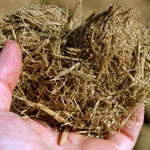C5.6 Technologies of Middleton (WI) and the Wisconsin Institute for Sustainable Technology (WIST) at the University of Wisconsin-Stevens Point recently won the grant to continue work on developing bacteria that will ferment sugar into isoprene, a high-energy molecule that can be used to make jet and other alternative energy fuels. The financial boost came from a $224,967 National Science Foundation grant through its Small Business Technology Transfer Program.
WIST has patented a process to separate biomass, including waste from pulp and paper mills, into constituent cellulose, hemicellulose and lignin. The cellulose can be converted to sugar. Current biofuel types are made from sugars derived from grains such as corn. On the other hand, cellulose is more plentiful as it’s a basic structural component of plants. Using cellulose in biofuel production does not involve a food versus fuel trade-off.
The WIST patent protects the production of isoprene from cellulose in a biorefinery. Ongoing research is aimed at optimizing processes to move toward commercial viability. Eric Singsaas, WIST director of research, said that besides its applicability as a fuel precursor, isoprene is also a valuable industrial chemical used in the making of latex, rubber, plastics and pharmaceuticals.
Isoprene for industry now is mainly produced from petroleum sources. Sourcing it from cellulosic sugar offers several environmental advantages, such as reduction of greenhouse gas emissions, and would help meet U.S. goals for renewable energy production.
Source: 3BL Media






